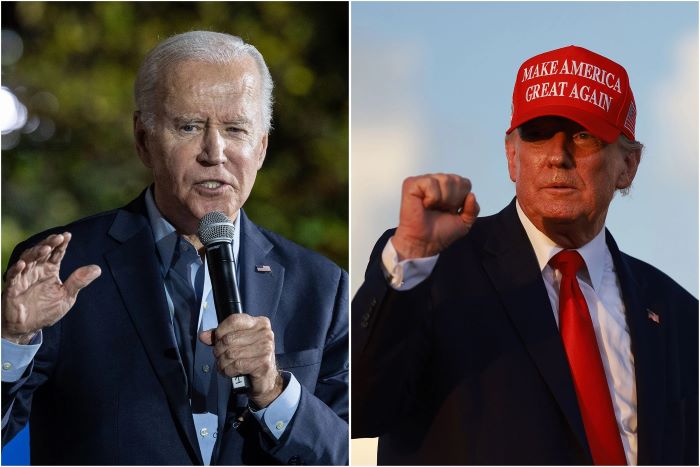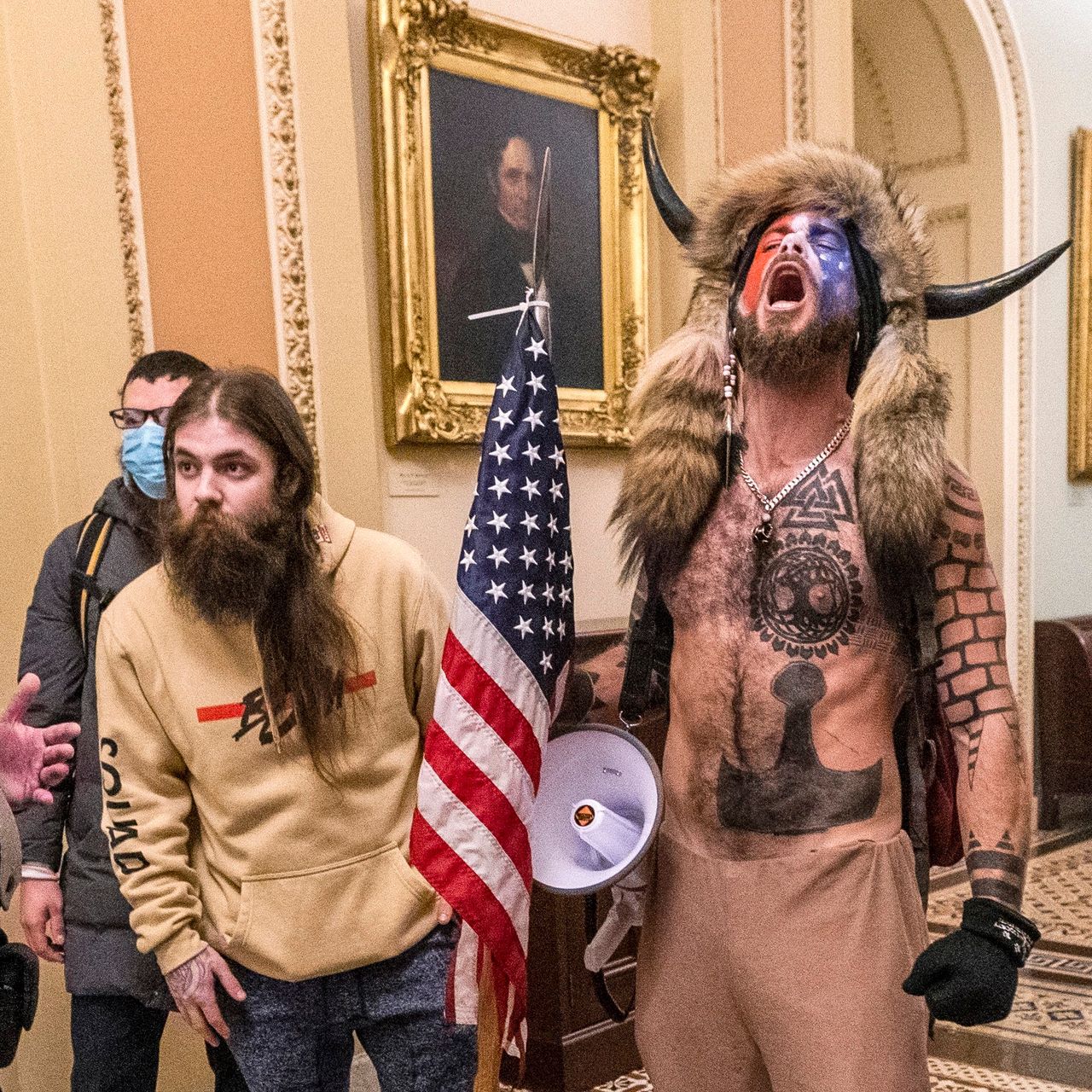Introduction
The 2020 U.S. Presidential Election was a pivotal moment in American history, serving as a profound reflection of the nation’s political climate. This election was not just about choosing a leader; it became a mirror showing the deep divisions and intense emotions that characterize contemporary American politics. Two key themes emerged from this period: political narcissism and cult-like behavior, each impacting the very fabric of American democracy.
Political narcissism refers to a scenario where political figures, and many of their followers, exhibit excessive self-admiration and obsession with their agenda, often disregarding the broader democratic principles and interests of the general public. Cult-like behavior in politics involves a group of people idolizing a leader or political party to the extent that they uncritically accept their views and actions, sometimes leading to extreme and destructive outcomes.
The Right’s Post-Election Reaction
Following the announcement of the 2020 election results, a significant segment of the political right, led by figures like former President Donald Trump and attorney Lynn Wood, disputed the outcome, claiming widespread election fraud. This stance was supported and amplified by certain media outlets, leading to a large portion of their audience questioning the integrity of the electoral process without substantial evidence.
This phenomenon exemplified political narcissism, where the insistence on election fraud seemed to stem more from a refusal to accept defeat than from concrete evidence. The consequences were profound – it eroded public trust in the electoral process and contributed to a highly polarized political environment.
The most extreme manifestation of these behaviors was the Capitol insurrection on January 6, 2021. This event marked a shocking and violent attempt to overturn the election results and disrupted the peaceful transfer of power, a cornerstone of democratic governance.
The Left’s Pre-Election Behavior
Conversely, the behavior of the political left in the period leading up to the 2020 election also demonstrated elements of political narcissism and cult-like behavior. The intense opposition to Donald Trump often went beyond policy disagreements and became deeply personal and emotional. This opposition influenced various narratives and behaviors, including the strong advocacy for strict pandemic-related measures like mask mandates and limitations on group gatherings.
While public health concerns justified many of these measures, some critics perceived them as authoritarian, arguing that they were enforced with a sense of moral superiority and disregard for differing opinions. This attitude reflects political narcissism in the sense that it involves a staunch adherence to specific beliefs, often coupled with the vilification of those who hold contrary views.
In summary, the 2020 U.S. Presidential Election was not just a contest between political candidates but a stark display of the deep divisions and the rise of political narcissism and cult-like behavior in American politics. Understanding these phenomena is crucial for addressing the challenges they pose to democratic principles and the societal fabric of the United States.
Psychological Underpinnings
Investigation into the Psychological Aspects of Political Narcissism and Cult-like Behavior
Political narcissism and cult-like behavior are deeply rooted in human psychology. These behaviors often arise from a fundamental human need for belonging and identity. When individuals strongly identify with a political group or leader, they can become susceptible to narcissistic and cult-like behaviors. This includes unquestioning loyalty, conformity to group norms, and vilification of out-groups or opposing viewpoints.
The Manipulation of Human Psychology in Political Contexts
Politicians and media outlets can manipulate psychological tendencies to foster loyalty and discredit opposition. Techniques such as repeating certain messages, appealing to emotions, and presenting complex issues in black-and-white terms can reinforce political narcissism. These strategies exploit cognitive biases like confirmation bias, where individuals favor information that confirms their existing beliefs, and groupthink, where the desire for harmony in a group leads to irrational decision-making.
The Role of Social Media and Echo Chambers
Social media platforms significantly amplify these psychological effects. Algorithms designed to maximize engagement often create echo chambers, where users are predominantly exposed to information that aligns with their existing beliefs. This constant reinforcement can deepen convictions and widen the divide between different political groups, further entrenching political narcissism and cult-like behaviors.
Impact on Democratic Health
Analysis of Behaviors Impacting Democratic Processes and Societal Trust
Political narcissism and cult-like behaviors can severely impact the health of a democracy. They often lead to polarization, where political compromise becomes increasingly difficult. This polarization can undermine democratic processes by fostering distrust in institutions and electoral outcomes. When political leaders or groups are unwilling to accept electoral defeat or consider opposing viewpoints, it erodes the foundational principle of democracy: the peaceful transfer of power based on the will of the people.
The Potential for Violence and Social Unrest
Extreme political division, fueled by narcissistic and cult-like behaviors, has the potential to lead to social unrest and violence. History has shown that when political discourse becomes excessively polarized, it can result in civil unrest, and in extreme cases, civil conflict.

Comparative Global Perspective
Comparison with Political Climates in Other Democracies
Political narcissism and cult-like behavior are not unique to the United States. In other democracies, similar patterns emerge, although they may manifest differently based on cultural and historical contexts. For example, in countries with multi-party systems, such behavior might be dispersed across more groups, potentially leading to a different kind of political landscape. In some cases, these behaviors might be more subdued due to different media landscapes or political structures.
Understanding Behaviors in Different Political Contexts
It’s crucial to understand that while the manifestation of these behaviors can vary globally, the underlying psychological principles are similar. This universality suggests a need for a broader conversation about how democracies can mitigate the impact of these behaviors and foster a healthier political discourse that is essential for the sustainability of democratic governance worldwide.
Mitigating Political Narcissism and Fostering Healthy Political Discourse
To address the issue of political narcissism and promote healthier political discourse, several strategies can be employed:
- Promoting Critical Thinking: Encouraging individuals to critically evaluate political information, question assumptions, and consider multiple perspectives can help break the cycle of political narcissism. This involves scrutinizing the sources of information and the motivations behind them.
- Encouraging Open Dialogue: Creating platforms for open, respectful discussions between people with differing viewpoints can help bridge the political divide. This might involve community forums, debates, or social media platforms designed to foster constructive dialogue.
- Cultivating Empathy and Understanding: Programs that promote empathy and understanding between different political groups can help reduce vilification and demonization of the ‘other side.’ Encouraging personal interactions and shared experiences between diverse groups is key in this effort.
The Role of Education, Media Literacy, and Civic Engagement
- Education: Incorporating lessons on media literacy, critical thinking, and civics in education systems can prepare future generations to navigate the political landscape more wisely. Education should emphasize the value of democratic principles and the importance of diverse viewpoints in a healthy democracy.
- Media Literacy: Teaching media literacy is crucial in enabling people to recognize biased information, propaganda, and manipulative tactics used in various media.
- Civic Engagement: Encouraging active participation in the democratic process, beyond just voting, can help individuals feel more connected to political decisions and less susceptible to extreme ideologies. This includes involvement in local governance, community projects, and political discussions.
Conclusion
The necessity of recognizing and addressing political narcissism and cult-like behavior in our political discourse cannot be overstated. These behaviors, if left unchecked, threaten the very foundations of democratic societies. Emphasizing dialogue, critical thinking, and mutual respect is paramount in strengthening the fabric of democracy. It’s through these efforts that we can hope to build a more informed, empathetic, and engaged citizenry, capable of navigating the complexities of modern political landscapes while upholding the values of democracy.
References and Further Reading
To further explore these topics, the following sources and literature are recommended:
- “How Democracies Die” by Steven Levitsky and Daniel Ziblatt – A profound look at how democracies around the world have slowly succumbed to authoritarian tendencies.
- “The Righteous Mind: Why Good People Are Divided by Politics and Religion” by Jonathan Haidt – This book offers insights into why and how people form political affiliations and the psychological underpinnings of their beliefs.
- “Trust Me, I’m Lying: Confessions of a Media Manipulator” by Ryan Holiday – An exploration of the modern media landscape and how information can be manipulated.
- “The Death of Expertise: The Campaign against Established Knowledge and Why it Matters” by Tom Nichols – This book discusses the growing disregard for expertise and knowledge in public discourse.
- “Network Propaganda: Manipulation, Disinformation, and Radicalization in American Politics” by Yochai Benkler, Robert Faris, and Hal Roberts – A deep dive into how media ecosystems can shape political narratives.
These resources provide valuable insights into the dynamics of political discourse, the psychological aspects of political behavior, and strategies for fostering a healthier democratic environment.

0 Comments